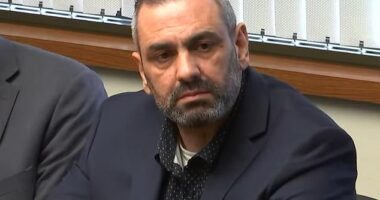Half of the 1011 people surveyed by the Australian Council of Social Service said they were skipping meals and going without medication to keep the air conditioning or heating on.
Some said they were selling their belongings or using buy now, pay later (BNPL) products to afford their skyrocketing energy bills.

Others said they were simply avoiding cooling or heating their home altogether to limit energy use.
Von, a 62-year-old from the Central Coast in NSW on the disability pension, said putting on the air conditioning wasn’t an option.
“I get up really early and track the weather, I can’t really open the windows and we have black-out curtains and a floor fan in each bedroom that cools it a little but paying for air-conditioning is out of the question,” Von said.
“Trying to sleep is unbelievable. I take cold showers in the middle of the night to cool down and use wet towels.
“It’s hard to clean the house because it’s too hot. Cost is a huge factor.”

Melbourne man Euan, 61, is also on the disability support pension and said nights during the warmer months are “terrible”.
“We do have a fixed air-conditioner but only in the main bedroom, the two kids’ bedrooms get incredibly hot in summer and stay that way,” he said.
“Every day is a battle for me and it’s worse at night with the heat.
“The house is more than 40 years old and the windows are old and single pane.”
Those surveyed by ACOSS said they wee cutting back the use of lights and cooling and limiting showers – or are are turning off big appliances to slash energy bills.

“It’s a complete travesty that in one of the world’s wealthiest nations people are getting sick, skipping meals and delaying medical appointments because they can’t afford to cool and power their homes,” said ACOSS chief executive Dr Cassandra Goldie.
ACOSS is calling on the federal government to fund energy upgrades to all 437,700 social housing properties by 2030.
“We urgently need to help people improve the thermal performance of housing, electrify and access rooftop solar and home batteries,” Goldie said, “with the most help going to low-income and First Nations housing.”
Energy bill prices are set to get worse from July 1 after the Australian Energy Regulator (AER) released its draft decision “default market offer” (DMO) today.
The average household may soon be paying as much as $200 more on annual electricity bills each year if the price caps for customers on standard plans are lifted.








